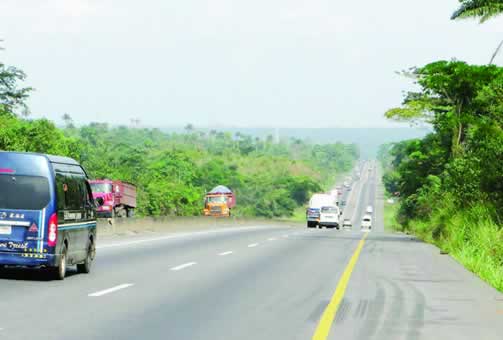A report by the leisure, and lifestyle destination development company, Landmark Africa Group, has said the destruction of its properties to give way for the construction of Lagos-Calabar highway threatens 80 businesses, and would lead to the loss of 16,000 jobs in its ecosystem.
The Chief Executive Officer, Landmark Africa Group, Paul Onwuanibe, was quoted in the report as saying the destruction of the company’s ecosystem to make way for the road would undoubtedly create a huge void that would be very difficult to fill given what the ecosystem represents to many Nigerians and the outside role the Landmark Ecosystem is playing in spotlighting Lagos as a viable tourism destination on the global stage.
In the report, the firm said, “There are over 80 third-party businesses including restaurants, retail stores, event spaces, leisure outlets, hotels, residential apartments, and more that come together to deliver the Landmark Ecosystem experience. Landmark, as a platform business, is well known as a “small business incubator” as the Group supports the development of small businesses through its creation of an enabling environment for SMEs to establish themselves, grow, and compete among larger businesses. Of the 80 businesses in the Ecosystem, over 70 per cent are SMEs, the majority of which are owned or managed by the younger demographic, and 40 per cent are women-led businesses. The reroute of the Coastal Road through the Landmark Ecosystem destroys the businesses and livelihoods that these business owners have been able to establish in the Landmark Ecosystem.
It added, “Additionally, Landmark and the businesses that reside within the ecosystem employ over 4000 people directly and 12000 people indirectly. Many of these jobs are filled directly by members of the local community in which Landmark resides. Landmark prides itself on being a business founded on excellence in Nigeria, for Nigerians, by Nigerians as it relies on viable and capable local talent to deliver world-class leisure experiences that serve domestic and foreign tourists alike on par with the international standard. Over 75 per cent of those employed directly and indirectly across the Landmark Ecosystem are between the ages of 18-35 years old as Landmark, a major hospitality business, provides a solution to the youth unemployment challenge plaguing Nigeria. The Coastal Road reroute threatens the livelihoods of thousands of Nigerian families who rely on the Landmark Ecosystem for their sustenance.”
Onwuanibe asserted that as a tourism business, Landmark attracted positive Foreign Direct Investment into the country by way of foreign and diasporan tourists looking for world-class leisure facilities within Nigeria, and also reduces FDI flight by giving local Nigerians an outlet to spend their income in Nigeria rather than spend the locally earned income on similar vacations outside of the country.
He added, “The construction of the road as presently planned portends the destruction of the Landmark Group with the over 80 businesses operating within its Ecosystem thus leading to the demise of a major player in the hospitality and tourism industry, mass unemployment, and loss in taxpayer revenue, among other socio-economic fallouts. Related News Where is the Lagos-Calabar rail? High employee turnover, major challenge in hospitality industry – Experts
“Landmark therefore is seeking consultation with those in charge of the Coastal Road alignment to determine ways to avoid such a seriously negative impact and deliver a win-win solution for all stakeholders including starting the 700km Road in a section of the country that would not destroy existing businesses and communities to give time for all stakeholders to deliberate the rerouting of the 1.5km stretch of the coastal road back to the Water Corporation Road, its original position.”
This followed the removal notice on physical development within the right of way of the proposed Lagos-Calabar coastal Highway project in Lagos state, issued to the company on March 18, 2024, requesting the removal of the affected portion to pave the way for the road construction project.
The Federal Government in March said it had commenced the construction of a 700km Lagos-Calabar coastal highway.
The Minister of Works, David Umahi, disclosed this in a statement issued by his Special Adviser on Media, Orji Uchenna, in Abuja.
It came a week after the Federal Executive Council approved a contract worth N1.067tn for the first phase of the highway’s construction.
The works minister said the 47.47km dual carriageway has five lanes on each side and a train track in the middle. Umahi explained that it formed part of the 700km road spanning nine states, with two spurs leading up north, noting that the facility would be constructed with concrete.
